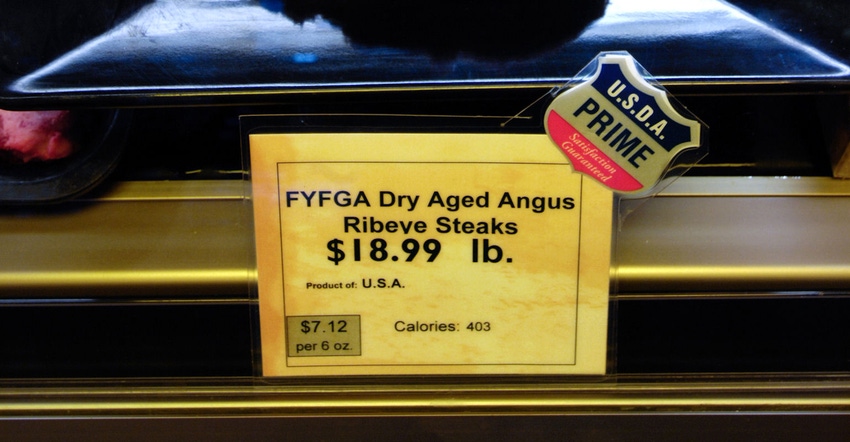
Legislation to reestablish mandatory country-of-origin labeling for beef will be formally reintroduced this week by a bipartisan group of senators including Sens. John Thune, R-S.D., Jon Tester, D-Mont., Mike Rounds, R-S.D., and Cory Booker, D-N.J. The American Beef Labeling Act calls for consultation between the U.S. Trade Representative and USDA to develop a World Trade Organization-compliant solution for improving beef labeling transparency.
The country of origin labeling debate goes back several decades including multiple farm bills as well as WTO challenges and an eventual ruling that found the original COOL requirements by Congress were trade distorting against Canada and Mexico.
The latest legislation will reinsert “beef” and “ground beef” into the current MCOOL law that requires country-of-origin labels on many food commodities, including meat from chickens, sheep, goats and deer.
USTR, in consultation with the U.S. Secretary of Agriculture, must develop a WTO-compliant means of reinstating MCOOL for beef within one year of enactment. USTR would have six months to develop a reinstatement plan followed by a six-month window to implement it. If USTR fails to reinstate MCOOL for beef within one year of enactment, it would automatically be reinstated for beef only.
“Transparency in labeling benefits both producers and consumers,” says Thune. “Unfortunately, the current beef labeling system in this country allows imported beef that is neither born nor raised in the United States, but simply finished here, to be labeled as a product of the USA. This process is unfair to cattle producers and misleading for consumers. When you see a ‘product of the USA’ label on the grocery store shelf, it should mean just that.”
Justin Tupper, vice president of the U.S. Cattlemen’s Association, says USCA appreciates efforts to push forward on solutions to define what constitutes a U.S. beef product. “From the perspective of the U.S. Cattlemen’s Association, that label should pertain only to beef that was born, raised, and harvested in the U.S.A. This legislation provides a pathway for achieving clear, accurate labels so that consumers can continue choosing to put high quality American beef on their plates.”
Related: 'Product of USA' versus 'Processed in USA' label debated
MCOOL has long been a top priority for the South Dakota Stockgrowers. James Halverson, executive director of the South Dakota Stockgrowers Association says, “MCOOL is the only way every single American producer can differentiate their beef from foreign products without leaving it up to some arbitrary program. The American consumer deserves to know where the center of their plate was born, raised and harvested.”
Rounds notes, “For those of us who support MCOOL for beef, this is just the start. The nine major cattle producing states won’t get this done alone. We need a national campaign to see this over the finish line.”
During the nearly seven years since MCOOL for beef was repealed, U.S. cattle producers experienced lower cattle prices and "were deprived the means to build demand for their U.S.-produced cattle,” claims Bill Bullard, chief executive officer of R-CALF USA.
Bullard adds, “Only with MCOOL for beef can cattle producers compete in their own domestic market where packers and importers – and not cattle producers and consumers – currently decide how much foreign beef they will import into the U.S. market to displace domestic beef production and reduce demand for cattle exclusively born and raised in the United States.”
USDA is also evaluating a regulatory fix on how USDA would establish what constitutes a “Product of the USA” label.
About the Author(s)
You May Also Like






